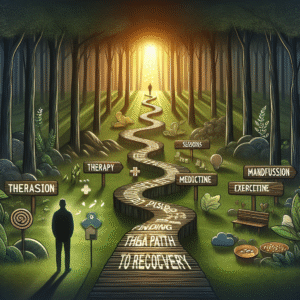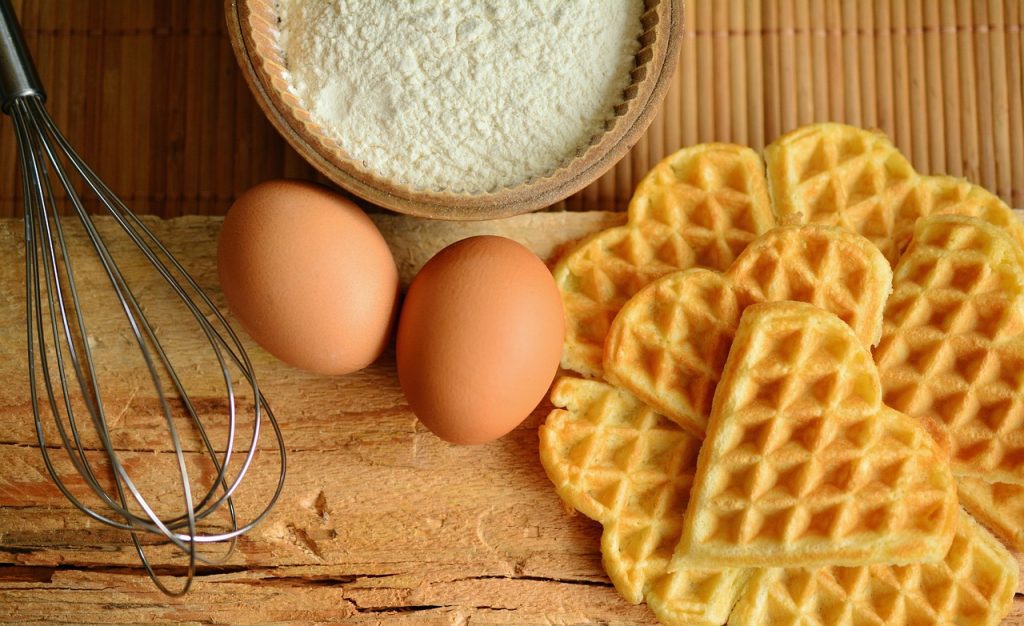Getting enough quality sleep is one of the most important things you can do for your physical and mental health. But if you’re struggling to fall asleep, stay asleep, or wake up feeling rested, your diet might be part of the problem—or the solution. What you eat, how much, and when you eat all play a critical role in how well you sleep.
Here’s how specific nutrients and meal timing impact your sleep—and how to make small changes to your eating habits to support deeper, more restorative rest.
Consume Nutrients That Promote Better Sleep
Some foods contain natural compounds that help regulate your sleep-wake cycle, calm your nervous system, and support hormone production. The following nutrients are key players in sleep quality:
Tryptophan: Tryptophan is an amino acid your body uses to make serotonin, a neurotransmitter that’s then converted into melatonin. Melatonin is the hormone that helps you fall asleep. Pairing tryptophan-rich foods with complex carbs (like whole grains) can improve absorption and make the sleep-inducing effects stronger.
Foods high in tryptophan include:
- Turkey
- Chicken
- Eggs
- Cheese
- Tofu
- Pumpkin seeds
- Oats
Magnesium: Magnesium helps relax your muscles and nervous system. It also supports melatonin production and reduces cortisol, the stress hormone that can keep you awake.
Good sources of magnesium:
- Almonds
- Spinach
- Bananas
- Avocados
- Dark chocolate (in moderation)
- Black beans
Calcium: Calcium assists in the conversion of tryptophan to melatonin and also plays a role in maintaining deep sleep.
Sources include:
- Greek yogurt
- Milk
- Cheese
- Leafy greens
- Fortified plant-based milks
Vitamin B6: This vitamin supports the body’s production of serotonin and melatonin. A deficiency in B6 can lead to symptoms of insomnia or poor sleep quality.
Sources include:
- Salmon
- Tuna
- Chickpeas
- Bananas
- Potatoes
Omega-3 Fatty Acids: These healthy fats reduce inflammation and improve serotonin production. Studies suggest omega-3s may also help regulate sleep rhythms.
Sources include:
- Salmon
- Sardines
- Walnuts
- Flaxseeds
- Chia seeds
Avoid Foods That Disrupt Sleep
Just as certain foods help you sleep better, others can interfere with your rest. Reducing or avoiding these may improve your ability to fall asleep and stay asleep:
- Caffeine: This one’s obvious but worth repeating. Caffeine is a stimulant that can stay in your system for hours. Even if you think it doesn’t affect you, it may still reduce the quality of your deep sleep. Avoid coffee, black tea, energy drinks, and chocolate after mid-afternoon.
- Sugar and Refined Carbs: Eating high-sugar or refined-carb foods close to bedtime can spike blood sugar and insulin, leading to restless sleep and nighttime awakenings. Skip desserts, white bread, and processed snacks before bed. Instead, choose whole food sources with fiber and protein to stabilize blood sugar.
- Spicy or Fatty Foods: Heavily spiced or greasy foods can cause indigestion or acid reflux, especially when eaten late at night. This discomfort can interfere with falling asleep or staying asleep. Limit spicy takeout, fried foods, and heavy sauces before bedtime.
- Alcohol: Though alcohol may make you feel drowsy at first, it disrupts REM sleep and increases the chances of waking up during the night. If you drink, limit alcohol intake and finish your last drink at least 3 hours before going to bed.
Timing Matters: When You Eat Affects How You Sleep
The timing of your meals can have just as much impact as what you’re eating.
- Don’t Eat a Heavy Meal Right Before Bed: Eating a large, heavy meal too close to bedtime forces your digestive system to stay active, which can make it harder to fall asleep and stay asleep. Aim to finish dinner at least 2–3 hours before bed.
If you need a snack before sleeping, choose a small portion of sleep-promoting foods—like Greek yogurt with bananas, whole grain toast with peanut butter, or oatmeal with nuts.
- Keep a Consistent Meal Schedule: Eating at irregular times can disrupt your circadian rhythm—the internal clock that regulates your sleep-wake cycle. Keeping a regular pattern of meals during the day helps reinforce a healthy sleep pattern at night.
Try to:
- Eat breakfast within 1–2 hours of waking up
- Space meals evenly throughout the day
- Avoid problematic eating patterns, like skipping meals then overeating later
4. Best Foods to Eat for Better Sleep
Here are some combinations you can include in your day to naturally support better sleep:
- Breakfast: Oatmeal with bananas and chia seeds
- Lunch: Grilled salmon salad with leafy greens, olive oil, and walnuts
- Dinner: Baked chicken with quinoa and steamed spinach
- Bedtime snack: Whole grain toast with almond butter or a small bowl of plain yogurt with berries
5. Hydration and Sleep
Don’t forget about water. Dehydration can cause leg cramps, dry mouth, and overall restlessness at night. On the other hand, drinking too much water right before bed can lead to frequent trips to the bathroom.
Balance is key:
- Stay hydrated throughout the day
- Reduce fluid intake 1–2 hours before bedtime
- Avoid caffeine and alcohol in the evening
6. How to Build a Sleep-Friendly Eating Routine
To make your diet work for your sleep cycle, follow these basic steps:
- Start your day with a balanced breakfast: This sets your internal clock and stabilizes blood sugar.
- Choose whole, unprocessed foods: Avoid highly processed, sugary items that lead to energy crashes.
- Include sleep-supporting nutrients daily: Focus on magnesium, tryptophan, calcium, and omega-3s.
- Eat dinner at least 2–3 hours before bed: This gives your body time to digest before sleep.
- Avoid sleep-disrupting foods and drinks: Especially caffeine, alcohol, sugar, and heavy meals late at night.
- Consider a light bedtime snack: Eat something small and nutrient-rich if you’re slightly hungry before bed.
Remember: your sleep doesn’t start when your head hits the pillow—it starts with what you put on your plate. By choosing the right foods and paying attention to when and how you eat, you can support deeper, more restorative sleep without relying on sleep aids. Eating for better sleep is less about restriction and more about mindful choices that align with your body’s natural rhythms. Start with small adjustments, stay consistent, and watch your nights transform!






